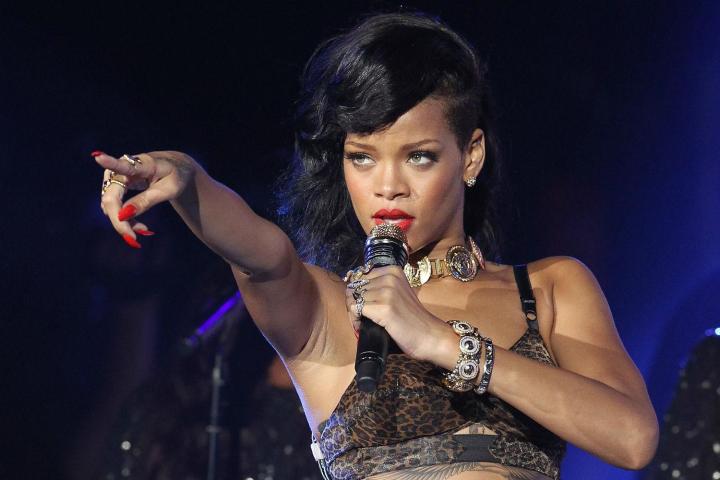
Back in October, Rhianna inked a lucrative $25 million partnership deal with Samsung. As part of her partnership, Rihanna offered a promo code for fans to download Anti for free from Jay Z’s Tidal streaming service. As a result, the album was downloaded 1.4 million times in 14 hours, according to Grace Kim, Tidal’s director of Marketing (speaking with Spin). But, as Pietroluongo explains, Billboard has a “well documented policy of not counting free albums towards the charts.”
Pietroluongo says the discrepancy between the two organizations isn’t hard to understand once you look into the details. “Billboard and the RIAA don’t always coincide with how they count things,” Pietroluongo says. “[RIAA’s] platinum albums have always operated under their own sort of rules,” citing RIAA’s odd system of counting the sale of one double album as two album sales as an example.
Pietroluongo confirms Billboard and Tidal discussed different ways promotion for the album could work under Billboard’s current policy. In relation to Anti‘s chart position, Kim stated Rihanna and Tidal “would’ve loved to have it count” on the charts, “but ultimately it became about giving music directly to the fans.”
Kim maintains “this is just the beginning of how we market albums, how we distribute music to fans, how fans consume music” and also says that soon “everyone else will have to come along for the ride.”
Pietroluongo does not rule this out. He stated Billboard and Tidal discussed how such a promotion might work under “future guidelines.” He went on to say the timing for the album did not match with where Billboard’s system is currently, but “six months from now, a year from now, [the Billboard charts] could look different.”
This is not the first time the Billboard charts got entangled with a product linked to Jay Z. Back in 2013, Jay Z sold one million copies of his Magna Carta Holy Grail album to Samsung for $5 million so the company could release it free through an app. As a result, the RIAA changed its rule from handing out album certification after 30 days of release to doing so on the date of release and certified Jay’s 12th studio album as platinum. Billboard stuck to its policy of not counting albums sold for free towards the charts and explained that if the app was sold for Billboard’s minimum pricing threshold, $3.49, the sales would have counted.
As the Samsung example shows, the RIAA’s policy of counting any and all album sales has some serious loopholes. If Jay Z or a head of a record label wanted to, they could potentially buy one million copies of their artists’ albums, and voilà, they have a roster of platinum artists under the RIAA’s model. That’s a major reason that Nielsen Soundscan and Billboard do not recognize bulk album purchases.
On the other hand, Billboard counts data from YouTube, Spotify, Pandora, and other streaming services which offer free and paid tiers. For album sales, 1,500 streams are equal to one album sale under Billboard’s revamped system. If Billboard is willing to count free streams towards album sales, why not free downloads? In a July 2015 article, Glenn Peoples of Billboard explained the metric for converting streams into album sales is based on the royalties that rights holders receive from streaming services for both the free and paid tier.
Essentially, the way albums are counted under Billboard’s system partly rests with record labels, streaming services, and the royalty shares agreed upon. And in the ever-evolving paradigm of the digital music landscape, who knows how that will change in the near future? For now, Billboard isn’t budging and as far as its concerned, Anti isn’t platinum — yet.
Updated on 2-2-2016 by Keith Nelson Jr: A spokesperson for the RIAA contacted Digital Trends to clarify its certification process. RIAA has a number of requirements that needs to be met for its certifications, which are then audited by a third party auditing company. One crucial requirement is an album must be sold for at least an average retail value of $6 or an average wholesale value of $2 for that sale to be counted towards an RIAA certification. This would help prevent a record label from simply buying millions of its artist’s albums to get a certification. Additionally, RIAA does not count albums given out for free as part of promotions towards certifications. However, the album sales from Rihanna, Samsung and Tidal’s promotion counted towards a certification because a) Rihanna and her label were compensated beforehand, and b) proof of fan/consumer active, lean-forward demand, since her fans chose to use the free promo code to download the album instead of simply being given the album.


